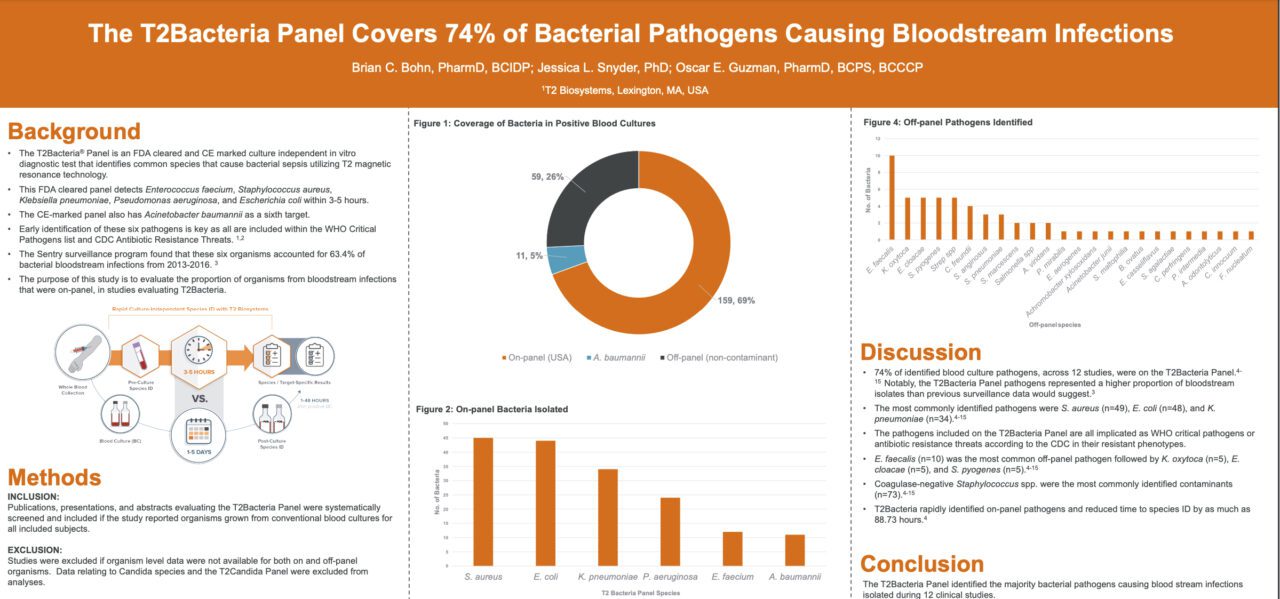T2 Biosystems, Inc., a prominent entity in the rapid detection of sepsis-causing pathogens and antibiotic-resistance genes, recently made headlines by securing the U.S. Food and Drug Administration (FDA) Breakthrough Device designation for its Candida auris (C. auris) direct-from-blood molecular diagnostic test. This achievement is particularly noteworthy as it marks the third time T2 Biosystems has received such a designation from the FDA, with the previous recognitions being for its T2Resistance® Panel and T2Lyme™ Panel.
The significance of this designation lies in the capabilities of the diagnostic test. It is designed to detect the C. auris species directly from blood samples in a mere 3-5 hours. This is revolutionary, as traditionally, clinicians would have to wait days for a positive blood culture to confirm the presence of the pathogen.
John Sperzel, the Chairman and CEO of T2 Biosystems, expressed his satisfaction with the FDA’s decision. He believes that this designation will not only provide more frequent access to the FDA but might also speed up the path to FDA clearance. The integration of this test into the FDA-cleared T2Dx Instrument will equip clinicians with a powerful tool to detect a perilous, multidrug-resistant fungal pathogen much faster than conventional blood culture-based methods. This enhancement is expected to bolster the appeal of T2 Biosystems’ products to U.S. hospitals.
Why is this a big deal?
C. auris is not just any pathogen. It’s a multidrug-resistant fungal pathogen that poses a severe global health threat. Alarmingly, it has a mortality rate of up to 60%. Traditional laboratory methods often struggle to identify it, leading to inappropriate treatments. The CDC has estimated that the costs related to U.S. fungal diseases can reach a staggering $48 billion annually. They have emphasized the importance of early detection and proper treatment, underscoring the life-saving potential of such interventions.
T2 Biosystems already has a product in the market, the T2Candida Panel, which is the sole FDA-cleared diagnostic test capable of detecting sepsis-causing fungal pathogens directly from blood without the prolonged wait for a positive blood culture. This panel can simultaneously detect five Candida species, including Candida albicans, Candida tropicalis, Candida parapsilosis, Candida krusei, and Candida glabrata. Swift detection of these pathogens is crucial for initiating the right antifungal therapy and enhancing clinical outcomes.
An integral part of T2 Biosystems’ innovative portfolio is the T2Biothreat Panel. This panel is designed to detect six biothreat pathogens, which have been identified as biological threats by the U.S. Administration for Strategic Preparedness and Response (ASPR). The importance of such a detection system cannot be understated, especially in the context of national security and public health.
ASPR plays a pivotal role in ensuring the nation’s preparedness against various threats. Through the Public Health Emergency Medical Countermeasures Enterprise (PHEMCE) activities, ASPR collaborates with various partners to disseminate information and synchronize plans and actions. Their primary objective is to guarantee that the U.S. possesses and can deploy medical countermeasures to safeguard its citizens during crises. These crises can arise from a myriad of sources, including known and unknown chemical, biological, radiological, or nuclear (CBRN) threats, as well as emerging infectious diseases.
The collaboration between entities like T2 Biosystems and ASPR is vital. By developing advanced diagnostic tools like the T2Biothreat Panel, T2 Biosystems is not only contributing to the medical field but also fortifying national defense mechanisms against potential biothreats. In an era where the landscape of threats is continually evolving, having rapid and accurate detection systems is paramount. The T2Biothreat Panel stands as a testament to the advancements in biotechnology and its role in safeguarding public health and national security.
In conclusion, T2 Biosystems’ recent achievements and innovations are not just significant strides for the medical community but also for national security. Their ability to rapidly detect and treat C. auris infections, combined with their contributions to biothreat detection, showcases the multifaceted role of biotechnology in today’s world.
Source







